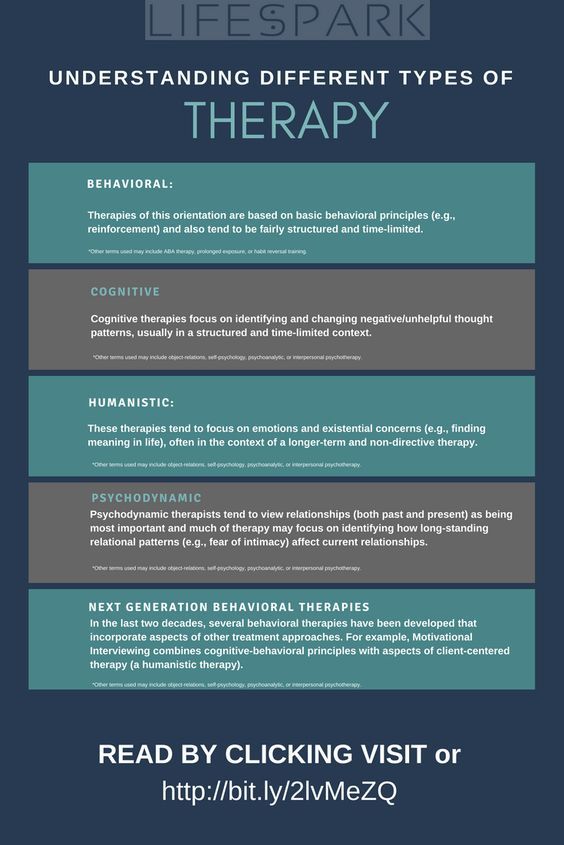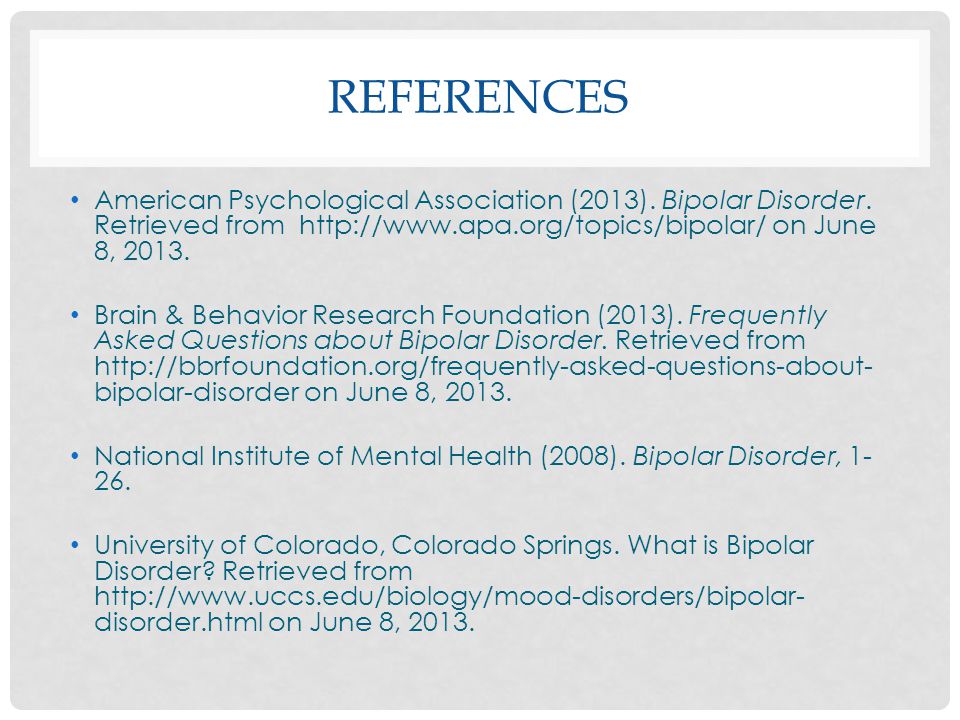I dont love my family
You Don’t Have To Love Your Family
Our culture has brainwashed us all to worship at the altar of family kinship. Why? No innate reason exists for loving your family, or even liking them, except for genetics. And that’s a shitty reason.
Mainstream media bombards us with images of happy families, traditional or otherwise. We’re taught that we have nothing without our clan. If you don’t spend every Christmas with your extended relatives, then you must be a crippled alcoholic, popping Vicodin until the holidays end so you can go back to work. Wrong. Some of us just don’t feel anything toward our families, one way or the other. With mine, the good cancels out the bad. That should be okay.
This friend of mine, her entire family pitched in and bought her a wedding dress last Christmas. The problem? She’s not engaged. I mean, she
had been. The family all knew her fiance, and blamed the relationship’s failure on her. Her mom said, “We just thought we might as well give you some motivation. ” My friend is great, practically my sister. When she told me, she cried a little. But then we realized that it was typical behavior for her family. No surprise here. My friend was hurt because she thought her family was supposed to love her. When you realize that maybe your family doesn’t love you, then a light opens. You no longer feel betrayed.
If your family does love you, great. Good for you. But some of us just have shit families, and inner peace depends on releasing the expectations of unconditional love.
I’m not sure why I don’t love my dad. Logically, I know he’s worked hard to provide for us. He’s helped me in lots of ways, mostly financial. I feel indebted to him, I admire him, I respect him, and I’m definitely going to buy him a fantastic headstone. His funeral’s going to totally kick ass. Why am I thinking about his funeral? He’s a big smoker. I’m pretty sure he’ll die of cancer. He already has the gut-wrenching cough. When he goes, I’ll be there at his bedside.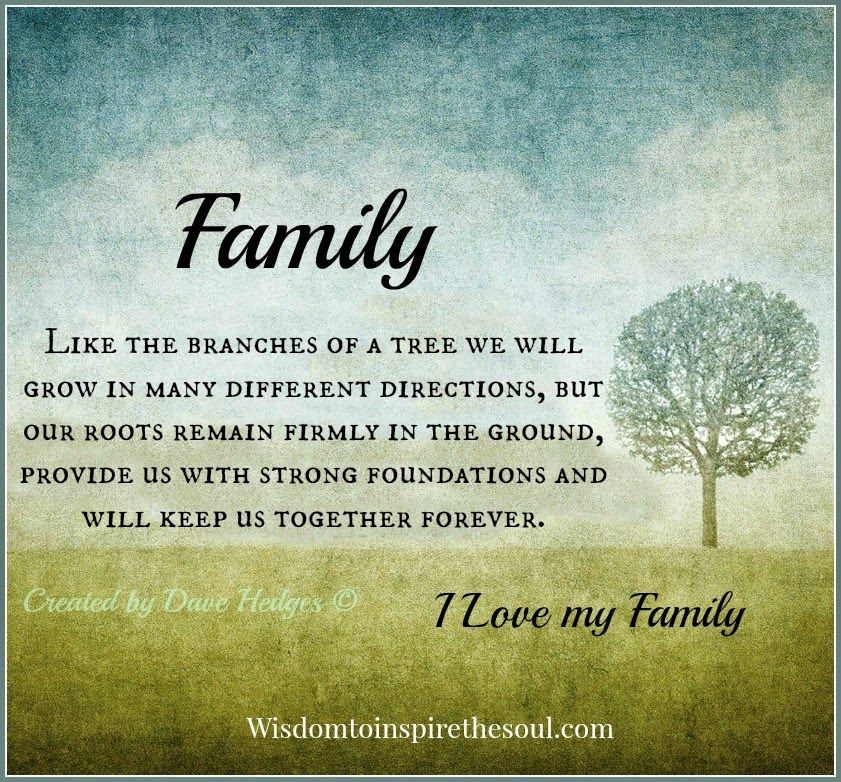 I’ll tell him I love him, because that’s what he deserves. But do I actually love him? I don’t know. Most of the time, I’d rather not talk to him. Growing up, he made fun of me a lot. He judged me constantly, and more than once he said some cruel things that I’ll never forget.
I’ll tell him I love him, because that’s what he deserves. But do I actually love him? I don’t know. Most of the time, I’d rather not talk to him. Growing up, he made fun of me a lot. He judged me constantly, and more than once he said some cruel things that I’ll never forget.
What things? Oh, you’re so curious. He described my writing as garbage once. Called me fat. Useless. Dumb. In a strange turn of events, he later told me I was wasting away, too thin, unhealthy. I’m over all that, but consider: Would you want to hang out with someone who said that shit to you? Highly doubtful.
Does pretending to love someone count as a kind of real love? I guess it depends on what you get out of it. If you pretend to love someone so they keep you in their will, I guess not.
Don’t even get me started on loving my grandparents and uncles. Fine, get me started. Here’s how my last conversation with my grandma went before she dropped dead: She asked me how my classes were going.![]() (It was my third year of teaching.) I told her great. She answered: “I hope you don’t have too many blacks.” I answered: “Actually, I have five black students and they’re amazing.” I would’ve added a “fuck you,” but I didn’t want to be directly responsible for her death. Anyway, I hung up and we never spoke again. About a year later, she died. I skipped her funeral.
(It was my third year of teaching.) I told her great. She answered: “I hope you don’t have too many blacks.” I answered: “Actually, I have five black students and they’re amazing.” I would’ve added a “fuck you,” but I didn’t want to be directly responsible for her death. Anyway, I hung up and we never spoke again. About a year later, she died. I skipped her funeral.
In the south, skipping your grandma’s funeral earns you black sheep status instantly. To half my family, I’m one of those liberal professors now.
One of my uncles is a motivational speaker. His website makes me squirt beverages through my nose. He claims to be an internationally renowned life coach, author of five best-selling self-help books. How bad is he, you ask? Image a real life Stuart Smalley, who makes videos on his smartphone, and bares absolutely no resemblance to Al Franken. When I’m feeling bad about myself, I visit his website. My self-esteem rises immediately. Anyway, the real reason I feel nothing for him: he’s a selfish ass wipe. Whenever he visited us growing up, he always asked my dad to invest in his latest ridiculous idea. He bragged about himself all the time, and he did everything possible to avoid getting a real job to support his own kids.
Whenever he visited us growing up, he always asked my dad to invest in his latest ridiculous idea. He bragged about himself all the time, and he did everything possible to avoid getting a real job to support his own kids.
If you can’t even respect someone, you probably can’t love them. Love requires dignity, I think.
Let’s turn to my brother, five years my junior. If I’m honest with myself, I’d describe him as a lucky loser. He lives at home, has never attended college, and he’s only ever had one girlfriend. What makes him lucky? Well, he has a home at least. He’s managed to catch a couple of full-time jobs, and his one girlfriend is pretty fucking hot. They’re still dating. She’s shy, like him. I’m pretty sure they’ll get married. My brother’s pretty good looking; he’s just really fucked up in the head. Figures. We were both raised by our schizo-mom. Yes, actual schizophrenia. Violent, unpredictable, dangerous mom. I’m fucked up, too. But somehow I managed to play the game of life a little better than him so far.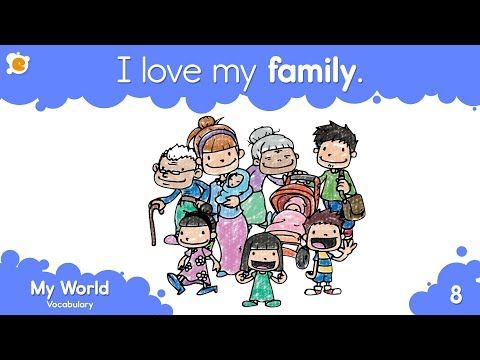
Why don’t I love my brother? Like with my dad, I always feel like I’m faking everything when I’m around him. I hold back a lot, hardly ever tell him what I really think about anything. For instance, he voted for Trump because he thought Hillary was dishonest. When I try to express myself to him, he starts to freak out, like I’m in a coven or something.
If we lived 300 years ago, I’m convinced my brother would’ve sold me out as a witch. He probably would’ve attended my stake-burning. You can’t love someone if you think that, in another era, they might’ve rounded up a mob to burn you alive.
Foremost, I doubt his intelligence. For chrissakes, he voted for Trump. Last visit home, I tried to figure out why over a game of Foosball. I hate Foosball, by the way. Reasons he voted for Trump? They fell apart after 15 minutes of talking to me, and he was left speechless. Sad.
My real family are my friends, people I can talk to without fear of judgment, people who I can let my guard down around.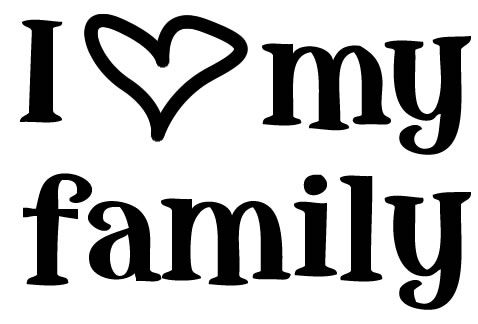 These days, I tend to spend more time with them over the holidays than my “real” family. All of them have similar situations to mine. Dysfunctional drunks for parents. Evangelical monster siblings. Abusive step-dads. We seem to have sought each other out, and we love each other. I’d cry harder for one my friends than I’d ever cry for someone in my immediate family. They have flaws. My best friend has hurt me deeply at least three times. But I forgive her (and that’s another blog post altogether.) Despite those painful moments, I can love my best friend(s) because they give me something I can’t find anywhere else. If it’s not unconditional love, it’s unconditional acceptance. Sometimes, your true family’s not the one you’re born with, but the one you make.
These days, I tend to spend more time with them over the holidays than my “real” family. All of them have similar situations to mine. Dysfunctional drunks for parents. Evangelical monster siblings. Abusive step-dads. We seem to have sought each other out, and we love each other. I’d cry harder for one my friends than I’d ever cry for someone in my immediate family. They have flaws. My best friend has hurt me deeply at least three times. But I forgive her (and that’s another blog post altogether.) Despite those painful moments, I can love my best friend(s) because they give me something I can’t find anywhere else. If it’s not unconditional love, it’s unconditional acceptance. Sometimes, your true family’s not the one you’re born with, but the one you make.
This article was originally published on
18 signs your family doesn't care about you (and what to do about it)
We all know family life can be tough at times but does the way your family behaves leave you questioning whether they even care about you?
Feeling like your family ignores you, doesn’t respect you, or even like your family doesn’t love you, is incredibly painful.
Maybe you feel like the black sheep of the family and always in the wrong.
Perhaps you feel like no matter what you do it is never good enough.
You may even feel like you’ve been raised by narcissists who aren’t interested in you or your life at all.
Although you might feel like your family doesn’t care, it’s never usually that simple.
There are steps you can take right now to improve family ties — so you no longer feel like a victim over how they behave.
In this article, we’ll run through 18 telltale signs that your family doesn’t care about you and how to deal with it.
The signs of a toxic family environment
1) They ignore your boundaries
Boundaries are what help healthy relationships to function.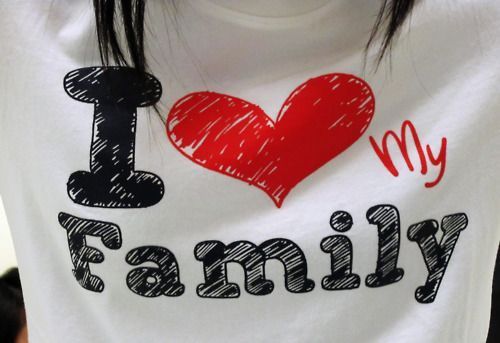
Your boundaries act as your own individual set of rules. It’s almost like your own private club, where the do’s and don’ts are clearly laid out.
Whilst it’s nice to feel close to your family member, boundaries and drawing a line about what is acceptable and unacceptable is super important.
Boundaries may include practical understandings about things like, how often you will be in contact or visit.
They can also be emotional — for example, what you decide to share with a family member or certain topics that aren’t up for discussion.
If your family routinely pushes or completely ignores any boundaries that you have set, it can feel like a clear sign of disrespect.
2) They are neglectful or abusive
Neglect and abuse come in different forms.
If a member of your family is physically abusive towards you this is clearly unacceptable and not something you should have to deal with alone.
Whilst you should always seek help and never tolerate physical abuse, it’s also important to recognize verbal or emotional abuse.
Constant yelling, manipulation, threats, and bullying are all signs of abuse too, which can make you feel like your family member doesn’t care about you.
3) They always prioritize themselves and don’t seem to care about what’s happening in your life
Do you notice that every conversation you seem to have is always about them?
Perhaps every time you meet they talk for hours about their problems or dramas, yet take very little interest in what you’re going through.
Selfish family members have a habit of making everything about them, without asking questions about how you are.
Self-absorbed or needy people leave any relationship feeling very one-sided.
4) They leave you out
One of the things that may be making you feel isolated from your family is that they seem to leave you out.
This can especially happen when other family members enjoy a special bond.
Perhaps you’ve long felt that your dad and sister are like peas in a pod and he has always preferred her.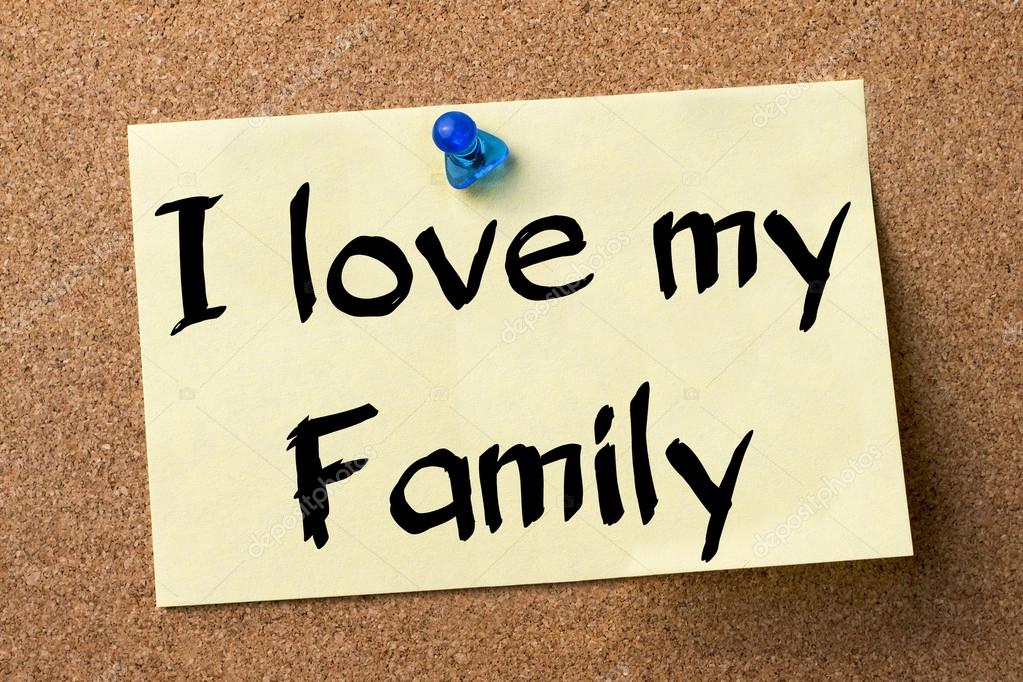
Whether you’re always the last to know important information or you never get invited to family gatherings — it’s difficult to feel close to someone when you feel like you’re on the outside looking in.
It can lead to such deep feelings of alienation, something I know about all too well.
5) They’re always canceling plans or letting you down
We often end up tolerating behavior with our families that we wouldn’t accept from a friend or someone we were dating.
Being constantly let down at the last minute or making plans with your family, only for them to back out can sting.
Ok, every now and then things may happen but if your family flakes on you on a regular basis it signals that you are not a top priority to them — and they’re willing to drop you whenever something else comes up.
6) They don’t make time for you
Life can be busy for all of us, we get that, but making time for the people we love is important.
It may seem that certain members of your family are always too busy to call, check in or meet up with you.
If they always have an excuse ready — whether that’s work, other people, tasks, or chores that they need to do — you might be left wondering why they don’t miss you as much as you miss them.
When others don’t make time for you it can feel like you’re worth nothing.
7) They’re never around for important celebrations
Significant milestones in our life are understandably important to us.
We’re going to remember the Christmases that parents were absent for, the aunts and uncles who “couldn’t make it” to the wedding, or the siblings that forgot to call on your birthday.
Not all days are created equal and when family members don’t make much of an effort for the most important days of our lives, it hurts.
8) They only get in contact when they want something
You missed a call from cousin Sarah — it can only mean one thing — she must want something from you.
You’re the first person they call when they need something picking up from the store, they’re packing for a big move or they’re a little short this month and could do with a loan — but the rest of the time, you don’t hear from them.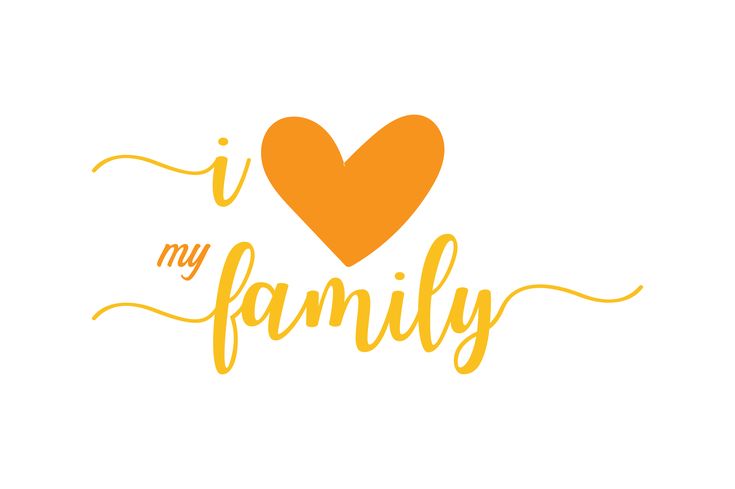
It’s easy to feel used when relations only come out of the woodwork when they have a favor to ask.
9) They compete with you
We’ve all heard of sibling rivalry, but this goes far beyond “the last one to the car is a rotten egg”.
There’s nothing wrong with a little dose of healthy competition — it encourages us to do our best and drives us forwards.
But at the same time, our families should ideally be our biggest cheerleaders.
If yours are always trying to outdo you, beat your personal achievements for the sake of one-upmanship, or to in some way try and impede you — it’s a red flag for toxic behavior.
10) No matter what you achieve they never acknowledge it
Is getting a “well done”, “good job” or “congratulations” out of anyone in your family, a bit like trying to get blood from a stone?
There’s just no pleasing some people; no matter what you do, your hard work will go unnoticed.
Whilst you shouldn’t need constant praise from loved ones in order to feel good about yourself, it’s understandable that we all want to feel like our families are proud of us — especially at times when we’ve done particularly well.
11) They are always criticizing
Not receiving praise is one thing, but constantly being criticized is another.
Constructive feedback in life can be useful in certain situations yet criticism and nitpicking never are. The criticism you receive may be overt or more subtle.
For example, comparing you to other people and asking “why can’t you be more like them” or making nasty comments about what you are wearing.
12) They constantly overreact
Having a relationship with anyone who flies off the handle is draining.
You may feel afraid to tell certain family members things for fear of how they will react — always feeling like you have to hide what is going on in order to try and keep the peace.
Living under the threat of a disproportionate reaction breeds tension, hinders communication and as a consequence, can create secrecy within a family.
13) They are controlling or pushy
Rather than respect your life choices and support you, it may feel like your family is always trying to manipulate you into doing what they want.
Occasionally when parents or other relatives think they know what is best for us, they can end up trying to force their own will rather than letting you live your own life.
When this happens you may feel manipulated or pushed into doing things that you really don’t want to do — and made to feel selfish if you say no to their demands.
14) They try to make you feel guilty when you put your needs first
It’s not always the people who scream and shout that are the most controlling in life.
Guilt is a powerful emotion.
Of course, you love your mom, but that doesn’t mean you can just drop everything and come running whenever she asks you to.
If someone tries to make you feel responsible for them — either in a practical or emotional way — it is a sign they are trying to manipulate you.
15) You don’t feel loved
All families have their ups and downs, we’re not always going to get along all of the time.
But despite whatever else is going on within your family, you should always feel that underneath it all, they love you.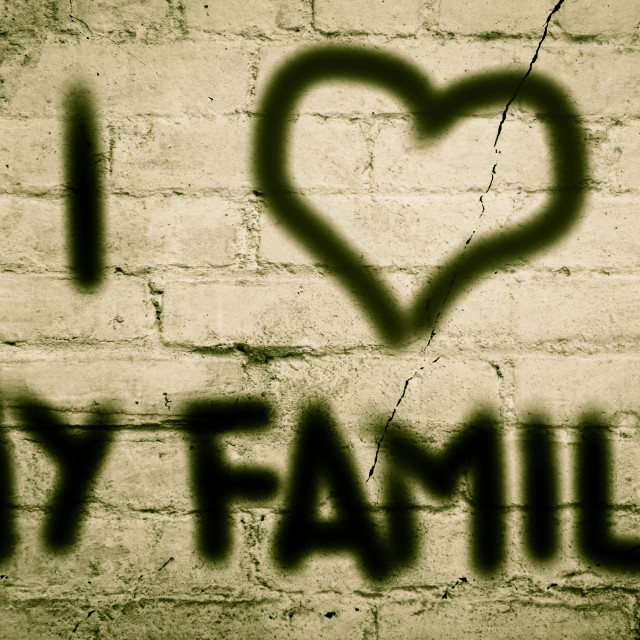
We each have different languages of love.
Some are comfortable speaking words of affection, others prefer to show how they feel by giving their time, attention or even gifts. Whilst some people prefer little acts of devotion to show their support.
Whatever love language they may use, if your family is unable to either show or tell you that they love you, it’s a significant sign of a dysfunctional relationship.
16) They’re not interested in what you think
There’s an old saying that “children should be seen and not heard”, but perhaps it feels like this applies to you even as an adult.
Do you get shouted down whenever you put forward your thoughts on a subject?
Do your ideas or suggestions always seem to fall on deaf ears?
If your opinions are routinely dismissed it can indicate that family members don’t respect or value what you have to say.
17) When you try to explain how you feel — they gaslight you
The term gaslighting comes from the plot of a 1938 play called Gas Light.
In it, a husband slowly convinces his wife that she is insane by dimming their gas-powered lights but denying it.
It’s these sneaky mind games that characterize gaslighting.
Gaslighting can feel tricky to identify because it mixes together a combination of powerful, but sometimes subtle, emotions.
You’re being manipulated and coerced but at the same time, you’re being made to feel like it’s all in your head.
If your family suggests you’re just being over-sensitive, are imagining it all or they always put the blame on you — they could be gaslighting you.
18) They don’t share with you
As cheesy as it sounds, sharing really is caring.
Sharing comes in many forms and it certainly doesn’t always have to be materialistic.
Of course, it might be sharing the things we have in life — whether that’s a meal we’ve prepared or loaning something we own.
But sharing our feelings and thoughts is also how we create emotional bonds.
What we choose to share with the people in our lives is how we feel close to them.
Why don’t my family care about me?
If you recognize plenty of the signs above, you might be left wondering why your family behaves this way.
Firstly it’s important to realize that if you feel like your family aren’t available to meet your needs, you’re not alone.
Far from being the Brady bunch, plenty of families spend their time just trying to get along without constantly screaming at one another.
Recent research has found that estrangement between parents and children is actually way more common than you might think.
A survey found that as many as 17% of people were alienated from an immediate family member.
The reasons for cutting off contact range from not liking a family member’s partner, feeling unaccepted or unsupported to more serious forms of abuse.
We’ve all had to deal with assholes before, but what do you do when those assholes are actually meant to be your nearest and dearest?
Whether you are tackling some serious family feuds or simply hoping to create healthier bonds — there are some important things to remember when dealing with difficult family members.
In the next section, we’ll run through what you can do to improve family relationships and protect yourself from harm.
6 steps for dealing with difficult family members
1) Refuse to play the victim
The funny thing about power struggles is that it always takes more than one person to create them.
Often we feel at the mercy of others. We think that how we feel is an unavoidable consequence of what someone else says or does.
But really, we give them this power. It is always your own mind that creates the suffering you experience.
In his book, Man’s Search for Meaning, Viktor Frankl shares his experiences as a prisoner in Nazi concentration camps during World War II.
Even in the most terrible of conditions, with little control over his own life, he concluded that he still always had the freedom to choose the meaning he gave events.
Whilst you may think you didn’t choose the role of victim in your family dynamics — that it arose from the situation — it doesn’t mean you have to play that role.
As soon as you stop seeing yourself as a victim, you can take control back over your own emotions.
2) Let go of the past to break patterns
Old habits die hard and many of the destructive patterns that continue to play out in our families have been around for years — if not decades.
The way you are with family members in the present might be influenced by outdated behaviors established in childhood.
Toxic ways of interacting as a family are often passed down from generation to generation — keeping us stuck in cycles.
Once we become aware of unhealthy patterns, we can consciously decide to break those cycles.
It may mean letting go of what has happened in the past.
You might need to forgive and forget.
You could be called to release any anger or hurt that you have been holding onto.
But whatever has gone before, it’s important to take responsibility for ourselves in the here and now.
Depending on your situation, that could mean wiping the slate clean in order to move forward towards a brighter future.
3) Communicate and create boundaries
When facing emotionally charged situations, we can find it incredibly difficult to open up about how we are really feeling.
It’s no doubt a vulnerable place to be in — but at the same time — honest communication is at the heart of all healthy relationships.
No matter how uncomfortable it may feel, or how much you worry about what they may say, it’s important to have an open conversation with your family about how you are feeling.
Try and keep things as neutral as possible, rather than throw blame around — we all tend to get defensive when we feel under attack.
Maybe your parents, sister, brother, aunt, uncle cousin — or whoever it is — didn’t know the impact they were having on you.
Once you have expressed how you’re feeling, you can then lay out some common ground rules for moving forward.
The important thing to remember about boundaries is that they are your rules, nobody else’s.
It’s up to you to decide what you will and won’t tolerate in your own life, be clear with others about it, and to enforce it when someone steps over the line.
4) Take the initiative to create the relationship you want
Talk is important, but so is action too.
Once you’ve identified areas of your relationship with a family member that you wish were different, think of some practical steps you can take to change that.
If you wish that you and your brother did more things together, just the two of you — plan an outing and invite him.
If you want to talk more often to your dad, make a decision to call him once a week.
Rather than waiting for someone else in your family to act differently — lead by example and take the initiative.
There’s a lot of “tit for tat” that goes on in relationships, but that often keeps us at a stalemate.
Resist making mental tallies and keeping score over what you think is fair.
“I visited them three times in a row and they still haven’t come to see me” won’t get you very far.
For whatever reason, we don’t all have the same to give in life. What matters is that you are giving what you can.
The reality may be that you have better life tools to help create stronger relationships than someone else.
If telling somebody you love them comes easier to you, why not do it. Maybe the person you are telling finds it much harder to say.
Look at places where your own pride might be getting in the way and ask yourself:
What is more important to me, would I rather be “right” or happy?
5) Don’t compare your family to others
Deep down, we all know that the perfect family doesn’t exist.
But it doesn’t stop us looking enviously at others — noticing how attentive their mom seems to be, how affectionate their dad is, or how great they seem to all get along at family gatherings.
For a start, we never know what is going on beneath the surface or behind closed doors in other people’s lives, no matter how it looks from the outside.
More importantly, though, it doesn’t really matter.
Your family dynamics are unique and it’s about creating a relationship that works for you.
Your best friend might chat to her sister every day on the phone.
Your partner may have weekly dinners with his parents.
It doesn’t mean that there is any less love in your family if you don’t do these things.
6) If you need to, step away or get outside help
Whilst family struggles are common if it all gets too much, you have the right to move away from any toxic relationship — even if it’s family.
If things get really bad, you might want to put some distance between you and the person you are having problems with.
That may be as simple as choosing not to engage or get involved in any dramas. Or it may mean cutting out certain people altogether.
Only you can decide when enough is enough.
You should never feel guilty about putting your own wellbeing first and choosing to step away — whether it’s only temporary or more long-term.
If you feel like you can’t do it alone and need outside help, you can always seek the advice of a professional, a support group, or a therapist.
Conclusion
There’s no doubt that handling toxic people within your own family can cause stress and anxiety.
You know what they say, you can choose your friends but you can’t choose your family.
For better or worse, the family relationships we have significantly shape us. But the good news is they are also far more resilient than we perhaps imagine.
It’s important to be patient and loving, not only with others but primarily with yourself when attempting to create positive changes within your family relationships.
Did you like my article? Like me on Facebook to see more articles like this in your feed.
I don't love my family
I don't love my family
Discussion is closed
31 reply
Last - Remove
#1
#2 9000
#3
#4
#5
#6
#7
#8
#9,0003
#10
#11
#12
#13
#14
#15
#16
9000 #17
#18
#19
#20,0003
#21
#22
Woman. ru experts
ru experts
-
Galimov Ildar
Family psychologist
59 answers
-
Vyacheslav is rich
Certified practitioner...
306 answers
-
Maria Burlakova
Psychologist
13 answers
-
Nikita Nosov
Practicing psychologist
27 answers
-
Nidelko Lyubov Petrovna
Practicing psychologist
227 answers
-
Alla Buraya
Psychologist
35 answers
-
Nikitina Anna Viktorovna
Specialist of Oriental practitioners
30 answers
-
Maxim Sorokin
Practicing psychologist
616 responses
-
Daria Gorbunova
Practicing psychologist
142 answers
-
Novikova Olga Dmitrievna
Practicing psychologist for .
 ..
.. 13 answers
#23
#24
#26
Invented stories
-
I am infuriated with my children and grandchildren ...
353 Answer
- 9000
The man immediately warned, which was immediately warned, which all property is registered on children
521 answer
-
Such a salary - I don't want to work
334 answers
-
A lie 22 years long.
 How to destroy?
How to destroy? 668 answers
-
Husband left, 2 months of depression... How will you cope if you are left all alone?
155 answers
#27
#28 9000
#30
9 answers
How not to confuse a panic attack with a heart attack or stroke?
6 answers
How to heal the inner child?
5 answers
Excitement, anxiety
9 answers
Have you tried to hire a psychologist with B17?
No answers
There is no one to speak out, past, if you do not want to read someone else's whining
22 answers
Popular topics per day:
-
Respond! who got pregnant after IVF?
219 327 answers
-
SPRING!!!!
131,951 answer
-
The soul does not age! A woman from 40 to 60 years old, is it a berry? - 2
109 396 answers
-
CYSTITIS just got it!!!
106 765 answers
-
Summer is coming and we are not ready
94477 answers
-
Luck or effort?
91 721 Answer
-
Depression, I do not like my life
62 Answer
-
How to survive the age crisis and do not divorce at 51 years
900018, I am afraid of
9026 pain? -
Childhood memories
2 answers
3 answers
Next Topic
-
1595 replies
Previous topic
-
Girls 175 and above do you wear high heels?
796 answers
I don't like my family and can't understand why
I don't like my family and …
8 answers
Last -
#1
#2
Guest
and Cho?
Why do we need your confession
#3
#4
100% this will not affect your future family, because this is a different attitude and a different concept of personal space. In order to have a child, you need to be close with your man, but I generally keep quiet about the child, it will develop in your body. So don't worry about it, you won't have any problems :) It's just that you have your own personal space for family members. It could be due to a thousand factors.
In order to have a child, you need to be close with your man, but I generally keep quiet about the child, it will develop in your body. So don't worry about it, you won't have any problems :) It's just that you have your own personal space for family members. It could be due to a thousand factors.
100% this will not affect your future family, because this is a different attitude and a different concept of personal space. In order to have a child, you need to be close with your man, but I generally keep quiet about the child, it will develop in your body. So don't worry about it, you won't have any problems :) calmed down a bit
I am afraid
9 answers
How not to confuse a panic attack with a heart attack or stroke?
6 answers
How to heal the inner child?
5 answers
Excitement, anxiety
9 answers
Have you tried to hire a psychologist with B17?
No responses
There is no one to speak out, past, if you don't want to read someone else's whining
22 answers
Popular topics per day:
-
Respond! who got pregnant after IVF?
219 327 answers
-
SPRING!!!!
131,951 answer
-
The soul does not age! A woman from 40 to 60 years old, is it a berry? - 2
109 396 responses
-
CYSTITIS just got it!!!
106,765 answers
-
Summer is coming and we are not ready
94,477 answers
-
Luck or effort?
91 721 Answer
-
Depression, I do not like my life
62 Answer
-
How to survive the age crisis and do not divorce at 51 years
900018 answers 9, answers 9.



